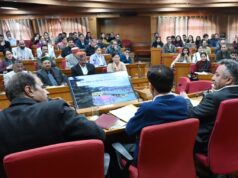CBSE has introduced major changes to its syllabus and exam structure for Classes 10 and 12, focusing on skill-based learning and offering greater flexibility in passing criteria. The updated framework aims to enhance students’ practical knowledge while reducing academic pressure.
For Class 10 students, CBSE has made skill-based subjects mandatory. They must now choose one from Computer Applications, Information Technology, or Artificial Intelligence. Additionally, students must select either English or Hindi as a language subject, which can be studied in either Class 9 or 10.
A key reform allows students who fail in core subjects such as Science, Mathematics, Social Science, or a language to replace the failed subject with a passed skill subject or an optional language. This move is expected to provide students with more opportunities to succeed in their board examinations.
For Class 12 students, CBSE has introduced four new skill-based elective subjects: Land Transportation Associate, Electronics and Hardware, Physical Activity Trainer, and Design Thinking and Innovation. With these additions, the revised Class 12 syllabus now includes seven learning areas: Languages, Humanities, Mathematics, Sciences, Skill Subjects, General Studies, and Health & Physical Education. The changes align with the National Education Policy (NEP) 2020, which emphasizes vocational training and practical skills.
CBSE has also modified its examination schedule and grading system. Class 10 board exams will now be conducted twice a year, with one in February and another in April, starting from the current academic session. Class 12 board exams will continue to be held annually, with the 2026 exams scheduled to begin on February 17. Additionally, a new 9-point grading system will replace the traditional percentage-based scoring for both classes.











